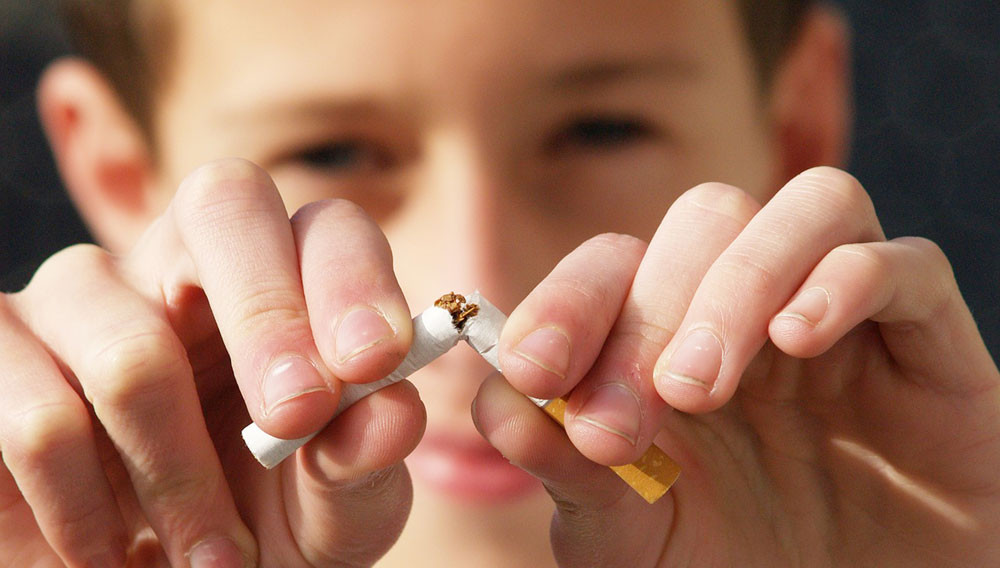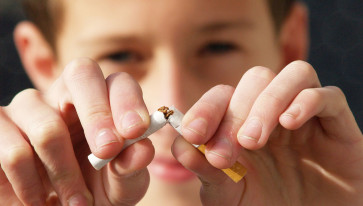Popular Reads
Top Results
Can't find what you're looking for?
View all search resultsPopular Reads
Top Results
Can't find what you're looking for?
View all search resultsCalls grow for higher tobacco excise as smoking hinders social aid
A study suggests that households with smoking members that receive social assistance have higher consumption of cigarettes than households with smoking members who did not receive assistance.
Change text size
Gift Premium Articles
to Anyone
C
alls have mounted for an increase in tobacco excise after a recent study suggested that smoking has reduced the effectiveness of social funds disbursed to eradicate poverty.
The study further showed that the funds could be used by recipients to purchase cigarettes that remain affordable in Indonesia, even to the poor.
A study conducted by the University of Indonesia's Social Security Research Center (PKJS-UI) analyzing data from the 2016 and 2017 National Social and Economic Surveys (Susenas) revealed that households receiving social funds and comprising smoking members had worse socio-economic conditions compared with those who did not have smoking members.
"We do not suggest that social assistance be stopped, because it has a great role in eradicating poverty. However, smoking harms the nutrient intake, education and health of children, so the target of the program can't be fully achieved because of that," head researcher Teguh Dartanto said during the launch of the study on Tuesday.
The center was compelled to conduct the study after Susenas data revealed a 1.47 percent increase in the prevalence of smokers among the poorest 30 percent of the population from 2016 to 2017. The government disburses social assistance to the poorest 40 percent of the population through various programs, such as cash transfers like the Family Hope Program (PKH) and Indonesia Smart Program (PIP), as well as goods transfers like the rice assistance program (Rastra).
"We found that recipient households with smoking members consumed far fewer calories, less protein, fat and carbohydrates compared to those with no smoking members. Their children, aged under 15, were also more likely to fall sick and had lower academic achievements with higher drop-out rates," Teguh said.
The study also suggested that recipient households with smoking members had a higher consumption of cigarettes than households with smoking members who did not receive social assistance. Teguh noted that the cases were most prominent among recipients of cash transfer programs; with PKH recipients consuming 3.5 more cigarettes per capita per week than non-recipients.


















